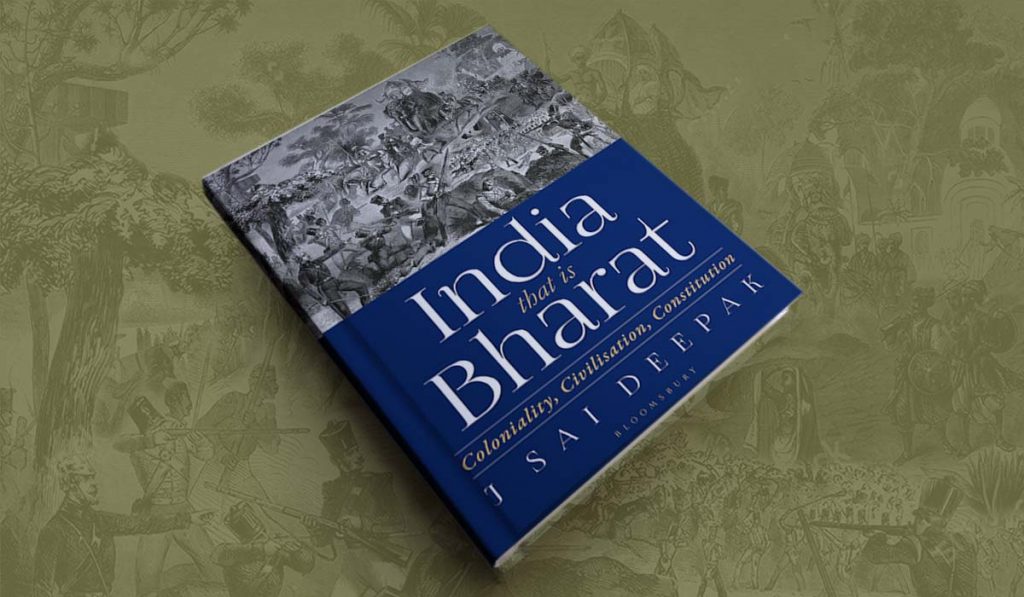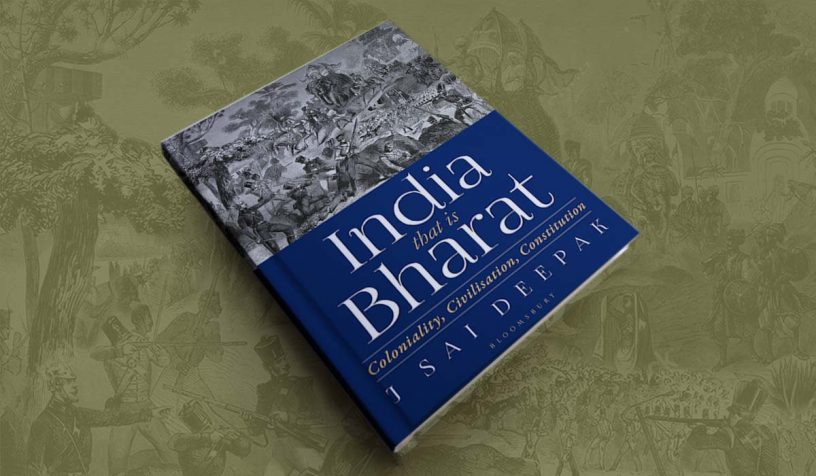
“India that is Bharat” does not just crib and complain, it charts a path for the restoration of our subjectivity and cultural and civilizational agency, says Saumya Dey in his review of the book by J. Sai Deepak.
Author
Saumya Dey, Associate Professor of History, O.P. Jindal Global University, Sonipat, Haryana, India.
Summary
“India that is Bharat” extensively documents the Christian evangelical intent of British colonialism in India, quoting several acts passed by the British parliament along with the protestations of MPs. We see that the essentially Christian worldview that underlay the colonial state informed its apprehension of Indian society and culture. For instance, the British derision for Brahmins evoked the Protestant distaste for the Catholic priesthood; apparently, the Brahmins were seen as its equivalent.
Similarly, we find that the colonial state approached Hinduism through an essentially Christian framework. It took a “doctrinal and scriptural” approach” towards Hinduism and tolerated only those practices which enjoyed textual sanction, the rest were termed superstition and immorality “warranting State interference.”
The far-reaching implication of this observation by Mr. Deepak is that many state backed reformist attempts in India might actually hearken to coloniality. As it winds to its conclusion, India that is Bharat contends that the constitutional development of India occurred within a Christian framework too. Mr. Deepak studies the many Government of India Acts that were passed between 1858 and 1919-20 and points out that they demonstrated a Christian intent. The Constituent Assembly of India thus “consciously or unconsciously” operated within the colonial OET.
In my view, J. Sai Deepak has emancipated us from the rut that postcolonial thought has become. India that is Bharat does not just crib and complain, it charts a path for the restoration of our subjectivity and cultural and civilizational agency. It does so with its simple yet powerful message – ‘that colonialism and coloniality were expressions of an ideology and worldview informed by Christianity and the legal and constitutional discourse of a postcolonial, non-Western state form such as India are still colored by it’.
Published in: Centre for Indic Studies
To read the full book review, please click here.


